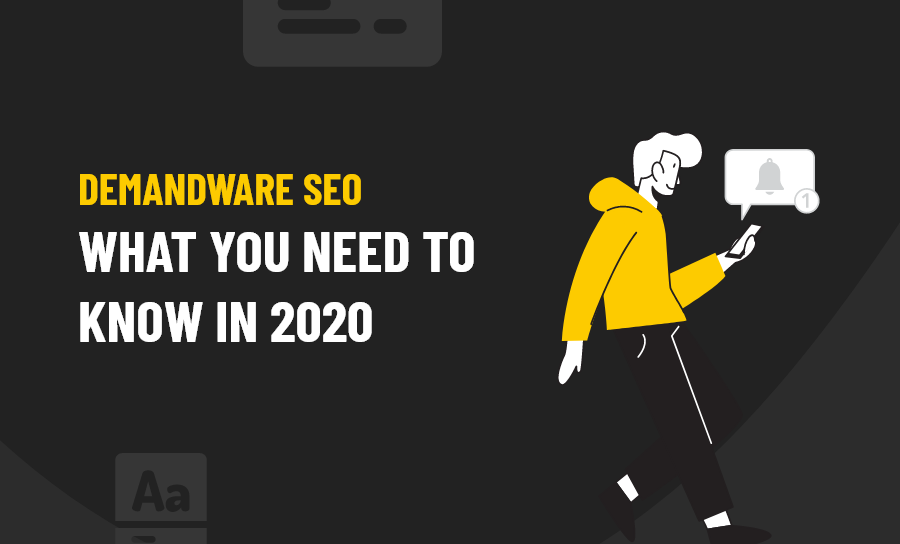The Salesforce Commerce Cloud – previously known as Demandware and still referred to as that more often than Salesforce might like – is the Internet platform of choice for some the world’s best-known eCommerce brands, including fashion and sports powerhouses Adidas, Lacoste and Puma. It’s also increasingly the choice of mid-size retailers who are looking for a better eCommerce solution in general.
From purely an SEO standpoint, the Salesforce Commerce Cloud/Demandware has a reputation for being a platform that is easier to optimise than many others and easier to keep free of potentially harmful SEO technical errors.
It can also boast great uptime – crucial to the success of any retailer who offers an online eCommerce option – and can be maintained without the need for very pricey additional development work.
In 2023 for many retailers, their online operations – even when they also have bricks and mortar stores – are more important than ever. COVID-19 related lockdowns and restrictions have seen the numbers of people shopping in physical stores plummet. Even an easing of restrictions in some places has not resulted in people flooding back into the shops and stores.
On the other hand, in both the UK and the US, and across a range of retail niches, online sales are flourishing, especially of ‘non-essential’ items. This is not surprising. Mainly confined to home here else are you going to shop? Not to mention the fact that several industry reports have highlighted the fact that sheer boredom – combined with having additional cash available not being spent on travel expenses etc. – is driving many consumers to spend more online than usual.
All this is great for retailers with a good online presence, but it also means, in many cases, that competition in the SERPs is increasing. This means that a brand’s SEO has to be better than ever if they want to get a larger share of their target audience’s shopping budget.
If you are making use of Demandware as an eCommerce platform – or are considering doing so – you are in a decent place already. But what experienced, up to date Demandware SEO expert teams know is that even using Demandware actively working on your SEO can make it even better.
Besides, there are some SEO challenges unique to the platform that should be addressed for your site to perform as well in the SERPs for your target keywords and key phrases as possible.
To get started, here is a look at some of those issues and what you can – and should – do about them:
Search Refinement Functionality and Duplicate Content Issues
Commerce Cloud/Demandware category landing pages allow users to refine the selection of the product displayed according to different search refinements, e.g. size, colour, which is great from a UX point of view, but not so great from an SEO standpoint.
This is because when users select one or more refinements, they add additional strings to URLs, potentially adding almost endless new Google URLs to site indexes and creating duplicate content that damages valuable SERPs rankings and, to be frank, wastes money.
A simple way to solve this issue is to prevent Google by using the robots.txt file from accessing search refinement URLs. When doing so, you do need to be careful; however, making sure that you do not also block Google from indexing the URLs you do want them to see. This means that having a technical SEO expert do the work is something of a must.
Effectively using Web Meta Tag Rules
The newest version of Commerce Cloud allows the application of meta tag rules to many pages with no manual page-by-page editing. The meta tags that you can use the rule feature include:
- Page Title
- Meta Description
- Robots
- Open Graph
You could also extend these to various pages, for example, the home page, product listing pages, product category pages and search results pages (individual product pages). Again, a rather neat set of options to have. But again, not without its complications that need to be addressed.
Why so useful? When they are used correctly the page meta tag rules let you do the following:
a) Target colour variations on product category pages for search
When people search for things that have colour variations, they often include that colour in their search terms, e.g. blue v neck jumper and not just v neck jumper. This means that you may actually want some of those color variant URLs indexed after all, but not so many that you start creating the duplicate content we have already discussed.
In the Commerce Cloud/Demandware platform, this is possible, but it takes a little work. Let’s say that you have the colour variant pages you want to be indexed sorted onto a list. You can then create a special rule that adds the appropriate colour to the front of every category page title when it is selected.
e.g. x.com/product-category/blue
Handy and a great way to get more targeted search traffic to your eCommerce site, But again, not always easy to implement if you are not a code person and something most will need help with to get right.
Removing Unnecessary Pages from the SERPs With Robots Tag
Let’s imagine that you discover – maybe thanks to a site link audit (something that should be performed regularly by the way) – that there are indeed URLs appearing in the SERPs that you would prefer did not.
One advantage Demandware users have over others is that the platform allows you to specify new rules that place a noindex tag automatically on pages that share certain similar characteristics.
Another example when this could be helpful is the ‘filter’ type pages discussed earlier that may still be indexed even when added to a robots file. Making good use of these special meta tag rules, you can specify that any page with a particular filter/search refinement is automatically given a noindex tag by default.
This is especially handy right now, as in 2019 Google announced that they were changing things up regarding noindex in general in a pretty big way. Now they – or rather their search bots – no longer automatically respect noindex directives, meaning that these need to be replaced with a noindex robots tag on an individual page by page basis. This makes Salesforce Commerce Cloud’s metatag rule functions even more potentially useful.
Head spinning yet? It’s very technical, we know. And actually just the tip of the iceberg. As good as Demandware can be for retail SEO it is also often prone to fall victim to some other, widespread SEO problems that can affect any site, no matter what it’s purpose is and what platform it’s based on. These include:
- Broken links. Even in a more expensive platform like Commerce Cloud, there’s no automatic link checker in place)
- Poorly optimised 404 rules and 404 pages. By this we mean for products that you no longer carry that have been removed from your site but are probably still linked to elsewhere across the Internet)
- Keyword over optimisation, as a result of repetitive product descriptions.
- Duplicate content issues concerning product descriptions that are repeated rather than rewritten.
- Badly written product descriptions that contain spelling errors and/or poor grammar. These are bad for both SEO and brand image and will adversely affect the page’s overall performance in the SERPs.
- Badly optimized product images. No, Demandware/Commerce Cloud does not do this automatically for you, although far too many people do not realise this.
- Poorly optimized images slow your site considerably, and speed is a big factor in SERPs placement in 2023, especially when it comes to mobile.
The fact is that as good as Commerce Cloud/Demandware SEO is out of the box to get the most out of it you still need to work on its general and technical SEO, and that work is an ongoing process. This is true for all sites, but especially for a retail site with an ever-changing selection of products to offer customers.
Demandware SEO is still a developing field. Fortunately, the Pearl Lemon Demandware SEO expert team’s long experience with eCommerce SEO – especially technical SEO – in general, has given us a head start. So if all of this has been too much techno-babble for you (sorry), but you still want to ensure your site, every page of it, ranks as well in the SERPs as possible, give us a call, we’ll be happy to help you.








